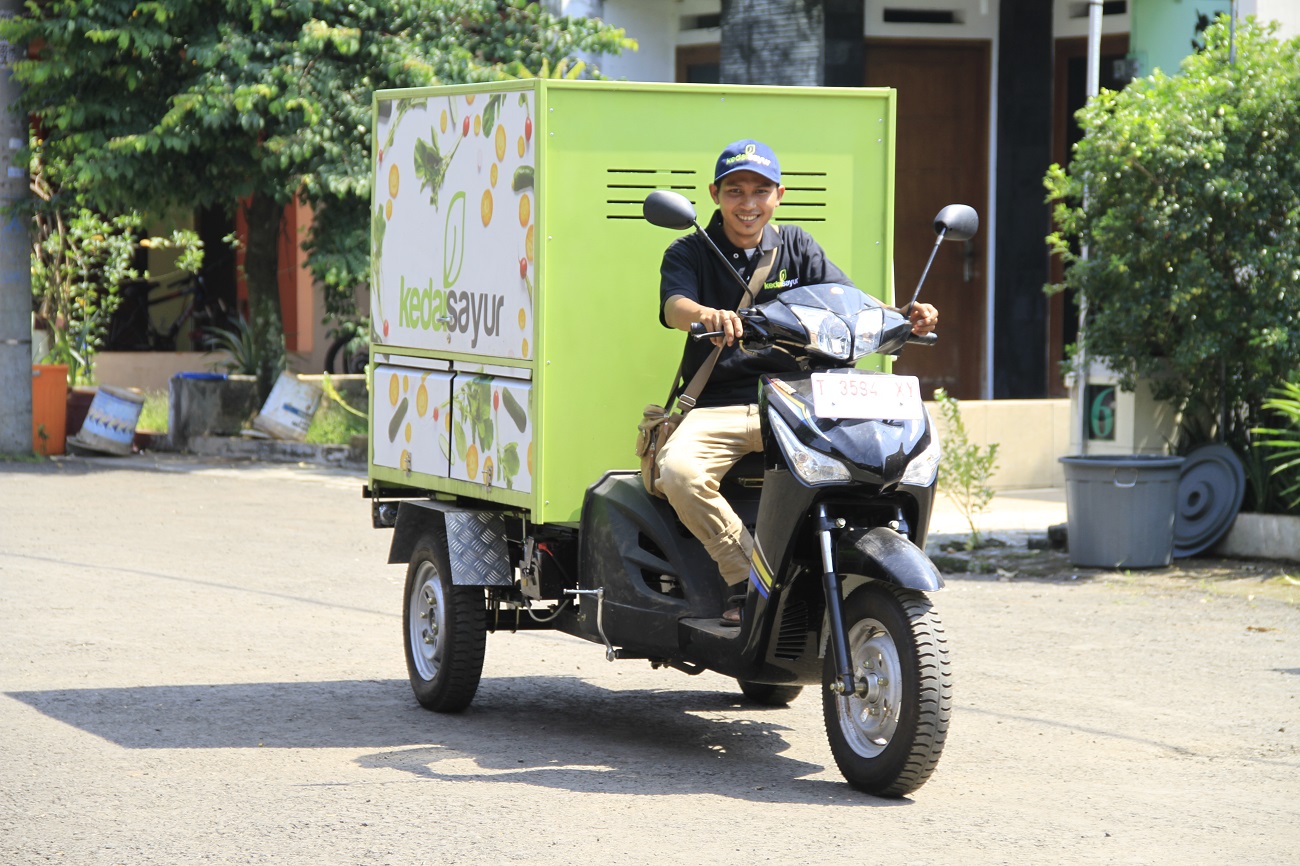Pivot Vegetable Shop Agritech Startup, Now Serves Food Delivery
Will be a permanent service with various feature improvements
Startups agritech Kedai Sayur announced a change in business focus to an online food delivery service since the pandemic took place in March 2020. Previously, the company served B2B consumers such as hotels, restaurants and cafes, and vegetable vendors who wanted to supply food ingredients for selling.
CEO Vegetable Shop Adrian Hernanto explained that the food product market has begun to change since the spread of Covid-19 began in early March. Demand from hotels, restaurants and cafes fell by 50%. Whereas previously the growth of this business was more than 20% per month.
Meanwhile, at the same time, demand from vegetable growers and household customers has increased significantly. It is on this basis that the company is confident to take business pivot decisions.
On the other hand, operational restrictions on the wholesale market and local markets disrupt the distribution pattern of fresh food products in Indonesia. This condition has an impact not only on consumers who cannot shop at the market, farmers also lose the medium to distribute their harvests.
"An unexpected pandemic period like this has really tested Kedai Sayur as a startup to be able to innovate and take initiatives quickly to continue to carry out its vision and mission to become a solution for the community," he said. DailySocial, Wednesday (13/5).
Further explained, this service business model uses various fleets to reach consumers. One of them, using the services of a vegetable handyman who has become a vegetable shop user.
Consumers who want to order groceries, through the Kedai Sayur application, can enter the Sayur Partner code. The order will be delivered to the Sayur Partner's place and will be distributed by him. Partners will also get additional income in the form of commissions and payment of shipping costs from consumers.
“This business model will become permanent, of course with various upgrade again in the future. For example, working with last-mile delivery service, in order to continue to improve service level we."

In addition to the application, orders can also be made through Tokopedia and Blibli.
The company also created an initiative that helps farmers to distribute their crops to customers, in collaboration with the Ministry of Agriculture. Farmers can sell their crops assisted by the government using digital platforms such as Kedai Sayur.
“Now with skill supply chain leaders and technology digital platforms, Kedai Sayur contributes to both sides of the distribution pattern affected by the Corona virus," he concluded.
However, Adrian was reluctant to explain the achievements he had obtained after his pivot.
Kedai Sayur is one of the portfolios under East Ventures. Since its establishment two years ago, the company has been twice get funding, for a total of $5,3 million. From the latest data, the company has partnered with more than 5 thousand partners in Jadetabek.
Business dynamics supply chain
The pivot choice taken by Kedai Sayur can be said to be quite successful in saving the company because it was affected by the pandemic. Thanks to the change in B2C business focus, the Kedai Sayur application has additional functions. Previously, the application was only used by Mitra Sayur and B2B consumers who wanted to stock up on groceries to sell.
More Coverage:
Another startup whose business intersects with Kedai Sayur, namely Stoqo, was forced to go out of business because it failed to adapt to conditions. They are a platform that focuses on providing basic food needs, ranging from meat, vegetables, flour, coffee, and others, but only for B2B consumers.
Before the pandemic appeared, this business model was certainly very bright because of the large cake in the culinary field. What was done by Kedai Sayur could actually be done by Stoqo.
Founder and CEO Wahyoo Peter Shearer explains the tactic to stay afloat is to keep demand rate. Wahyoo himself seeks to help stalls to be able to sell on digital platforms such as GoFood. At the same time, the implementation of large-scale social restrictions (PSBB) in many areas has shifted spending patterns in the region Wahyoo.
"Indirectly positive, with the PSBB and Covid-19, it forces food stall owners to adapt to digital more quickly," he added.
Sign up for our
newsletter
